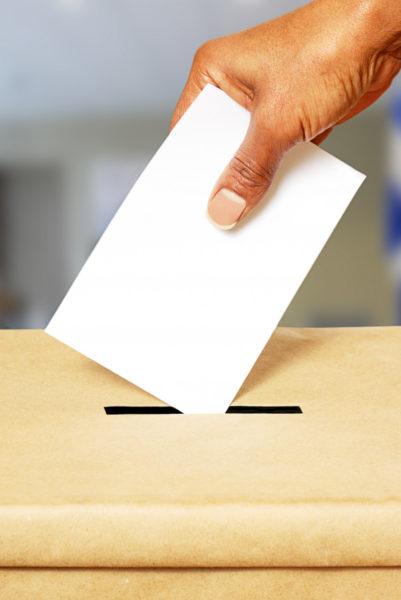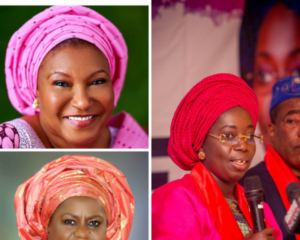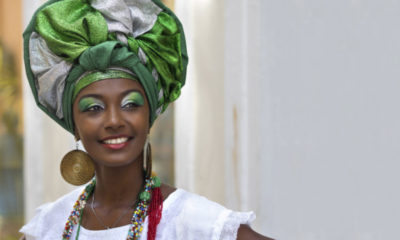Features
Faizat Badmus-Busari: Voting By Sentiments
 As the 2015 general elections draw closer in Nigeria, I have read, seen, discussed with family, friends and colleagues about the upcoming election and an issue that keeps reoccurring is the fact that some citizens intend to vote based on sentiments. In this context, not voting out of conviction or reason, but emotional bias such as religious, gender, cultural, and ethnic differences amongst others.
As the 2015 general elections draw closer in Nigeria, I have read, seen, discussed with family, friends and colleagues about the upcoming election and an issue that keeps reoccurring is the fact that some citizens intend to vote based on sentiments. In this context, not voting out of conviction or reason, but emotional bias such as religious, gender, cultural, and ethnic differences amongst others.
This is not entirely a new phenomenon. I remember being in a salon during the 2011 elections, and in the course of discussions amongst customers about the upcoming election, this very loud, apparently educated, lady encouraged us to vote for her candidate – arguing that her reasons for voting the incumbent President was because he is the first President of South-South origin, and it is their “turn” to hold office. In addition, he was the only Christian candidate contesting the election and they (she) do not want Muslims occupying the office.
As another general elections beckon again, Nigerians must look inward and decide what the priority should be – whether having a Christian or Muslim in political offices is more important than electing people who can deliver the “goods” despite their religion. Nigerians would have to decide whether the part of the country where leaders aspiring for various offices come from is a determinant of their capacity to provide effective leadership and most importantly securing lives and properties.
The Constitution of Nigeria provides the requirements for various political offices, one of which is candidates for political offices must belong to a political party and be sponsored by the party for election. Each of the political parties has a manifesto that their candidates run on. The manifesto represents the party’s ideology about governance – that is where the discussion must begin if Nigeria must move forward.
As Nigerians, we have to look deep into issues that really affect our country and our everyday life. I believe the Nigerian youth has developed to a stage where politicians should not declare intentions to run for a post without giving us their mandate and the policies they intend to carry out when elected.
Therefore, as Nigeria prepares for the 2015 general elections, the critical factors to consider are –
• The party and candidate’s list of issues (mandates) with which the electorate can identify based on their parties’ platform as the candidate’s election promises to the public.
• Learning about the candidate’s leadership abilities and how other people view the candidate,
• Illegal practices of vote-buying or illegitimate party finance
• Defamation and hate speech during campaigns,
• Voter intimidation by candidates, party agents, campaign staff and other persons affiliated to the party.
• Corruption in election-related decision-making and other fraudulent electoral activities,
• Lastly, the threat of the democratic system such as the freedom of speech, assembly, organization, and the right to vote and stand for election.
Elections are a crucial part of every democracy and in my opinion, a way out for the citizens to express their satisfaction or otherwise with a party or candidate’s historic or promised actions and performances.
A way to effect the change we have been seeking. Considering the current realities in Nigeria, the issues that should be of priority to any candidate seeking political office are –
• Security
• Poverty
• Corruption
• Economy
• Good governance
At the end of a campaign the questions you should ask yourself are:
• Which candidate’s view on pertinent issues do you agree with the most?
• Who ran the fairest campaign?
• Which candidate demonstrated the most knowledge on the vital issues of national importance?
• Which candidate has the leadership qualities you are looking for?
Is the choice clear? If so, pick a candidate.
Finally, to cap it all, please remember to #RSVP – REGISTER to vote, SELECT your candidate, Go out and VOTE, and lastly PROTECT your vote! Even if it means waiting till after all votes are counted. I understand the numerous difficulties and challenges involved achieving this process in Nigeria such as the appalling security situation in the country especially preceding and during election periods, but it is a challenge we should be willing to take.
RSVP is a commitment every citizen should be willing to make for national development as developed democracies around the world are products of commitment and dedication to entrenching democratic principles by their citizens even in the face of mounting challenges and dangers.
“Always vote on principle, though you may vote alone, and you may cherish the sweetest reflection that your vote is never lost.” – John Quincy Adams
What top issues do you want the candidates to address this upcoming election?
Photo Credit: Dreamstime | Teragram




















